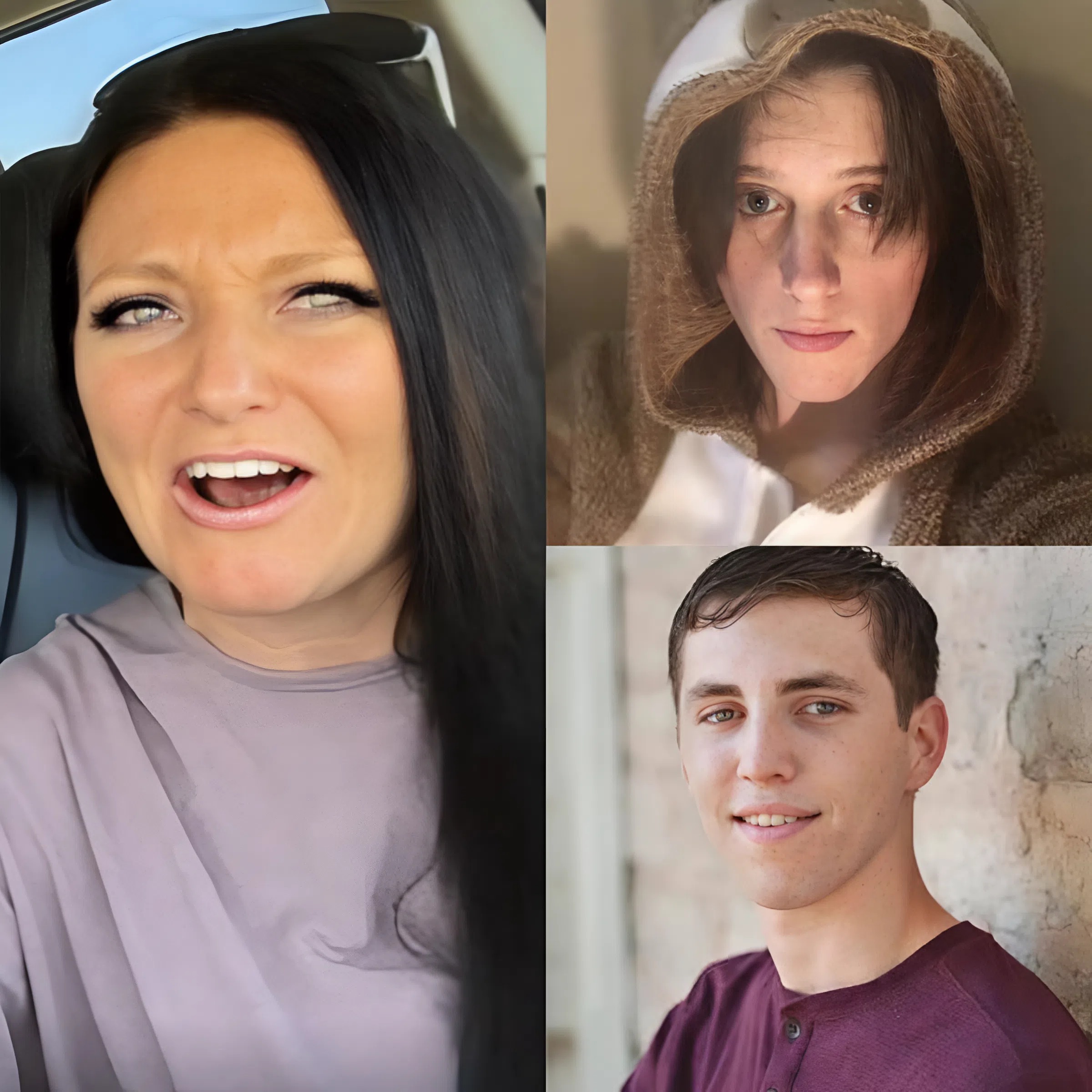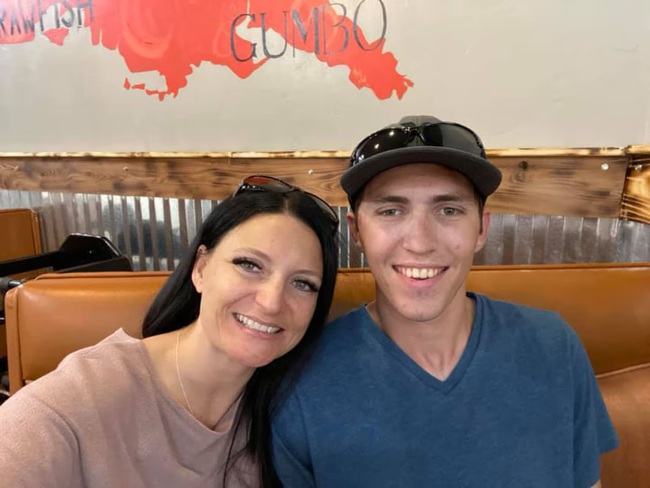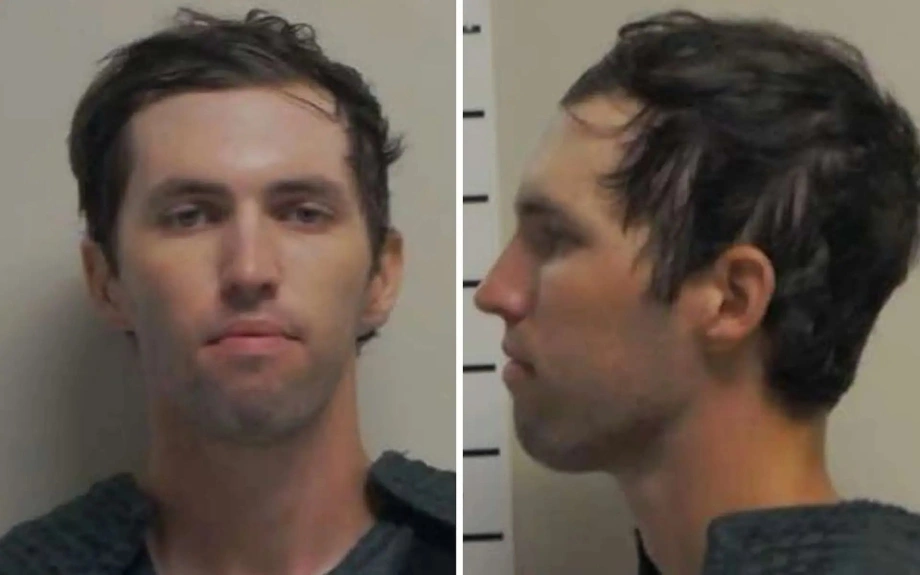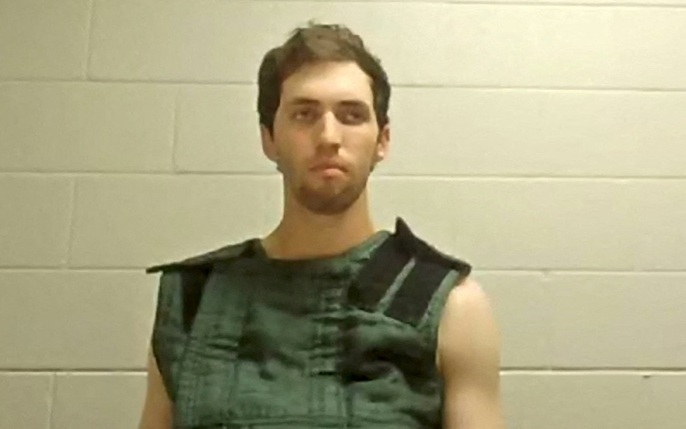Grief is rarely linear. It twists, it coils, it lashes out in unexpected ways. For nearly two years, Caroline Robinson—mother of 17-year-old Tyler Robinson—has kept her anguish cloaked in silence. She declined interviews, refused television appearances, and let her husband and attorneys handle the torrent of questions. But this week, that silence cracked open.
Standing outside the courthouse, clutching a framed photograph of her son, she uttered just ten words directed squarely at the man accused of ending his life:
“You will never erase my son’s name from history.”
Those words, sharp and defiant, pierced the charged air like a blade. They spread instantly across social media platforms, morphing into hashtags, rallying cries, and points of bitter debate. Yet Caroline’s eruption was not the only bombshell of the day. Hours later, authorities confirmed where the long-discussed $1.15 million reward fund would actually go—a revelation that has split the public, electrified local politics, and ensured that Tyler’s case will remain a national flashpoint for months to come.

A Murder That Shattered a Community
Tyler Robinson’s death was not just another statistic in Crestwood’s crime blotter—it was an earthquake. On a cool autumn night nearly two years ago, Tyler left a birthday party at a friend’s house, walked down a dimly lit residential street, and never made it home. He was found hours later, fatally shot, his cellphone still in his hand.
The killing ignited waves of grief and outrage. Tyler was no ordinary teenager: he was a standout athlete, a promising musician, and a mentor to younger students. Teachers described him as “the kid who lit up the classroom.” His peers remembered him as “the glue that held everyone together.”
Almost immediately, investigators named 28-year-old Marcus Twiggs as a person of interest. Twiggs, a local man with a reputation for street fights and previous run-ins with the law, quickly became the face of suspicion. But suspicion alone does not make a conviction. Witnesses contradicted each other, evidence was thin, and the case stalled.
That paralysis might have been the end of the story—another unsolved homicide in a system already overburdened. But then came the reward.
The Mystery of the $1.15 Million
Rewards in criminal cases are not unusual. Families, local businesses, or police associations sometimes pool together a few thousand dollars to encourage tips. But when Crestwood residents awoke to headlines announcing a staggering $1.15 million reward, jaws dropped.
Who had put up that kind of money? And why?
At first, officials offered no clarity. The reward was “privately funded,” they said. That secrecy spawned conspiracy theories. Some whispered that a Hollywood celebrity with hidden ties to Crestwood was behind it. Others speculated a tech billionaire was using the case to polish his public image.

The figure itself seemed almost grotesque in a town where average household incomes hover around $46,000. While families struggled to pay mortgages, a mysterious benefactor could casually drop more than a million dollars into a single criminal investigation. For many, it symbolized the widening gulf between wealth and justice.
Caroline’s Silence—and Her Breaking Point
Through it all, Caroline Robinson remained quiet. Friends described her as “a woman drowning in private grief,” uninterested in the circus surrounding the case. “She wanted her son back, not headlines,” said one neighbor.
But silence comes with its own costs. As the months wore on, internet forums filled with speculation—about her family, about her marriage, even about whether she truly believed Twiggs was guilty. That speculation, brutal and often cruel, seemed to harden Caroline’s resolve to stay away.
Until this week.
Her ten-word outburst outside the courthouse was not scripted, not rehearsed. Those who were present said it carried the raw energy of someone who had reached the limits of endurance. And yet, in its brevity, it transformed into something larger: a defiant line in the sand, a vow that Tyler’s name would not disappear into the void of unsolved tragedies.
The Bombshell Revelation
As the echo of Caroline’s words reverberated online, another revelation broke. County officials finally confirmed the true structure of the reward fund.

The $1.15 million, it turns out, was not the donation of one individual but a coalition of private donors, corporate sponsors, and even overseas philanthropists connected to youth crime-prevention initiatives. More shocking still: if the reward does not result in a conviction by the two-year anniversary of Tyler’s death, the money will not return to the donors. Instead, it will be transferred in full to a newly formed Robinson Foundation for Youth Justice and Community Safety.
The foundation—created in Tyler’s name—will have wide discretion to use the funds for programs addressing youth violence, mentorship, and educational opportunities.
In other words, even if justice stalls, the money will live on, tied to Tyler’s memory.
Outrage and Admiration in Equal Measure
The announcement split the community in two.
For supporters, the news was uplifting. “This is how you turn pain into progress,” one local pastor declared. On social media, supporters celebrated the foundation as a way to keep Tyler’s legacy alive. For them, Caroline’s ten words and the foundation’s creation fit together perfectly: both ensured Tyler would not be forgotten.
But critics were less charitable. Skeptics accused the donors of using Caroline’s grief as a shield for political or corporate gain. “This isn’t justice—it’s branding,” one viral post argued, suggesting the foundation would serve as a PR vehicle rather than a meaningful instrument of change.
Some demanded transparency about who the donors were, fearing the money could be funneled toward causes that had little to do with Tyler or Crestwood. The debate grew so intense that several local businesses that contributed to the fund faced boycotts.
Justice Versus Symbolism
The debate touches on a deeper question: what does justice look like when the legal system fails to deliver?

If Twiggs is never convicted—or if another suspect is never found—will the foundation feel like closure? For some, yes. For others, it risks feeling like a consolation prize: a way to soften the blow of a system that allowed a killer to walk free.
Legal analysts warn of another complication. The creation of the foundation, they argue, could subtly shift public pressure away from solving the actual case. “When money gets redirected into philanthropy, the urgency of criminal justice can fade,” said one law professor. “It risks turning a murder investigation into a charity campaign.”
The Political Ripple Effect
Crestwood’s mayor, already under scrutiny for rising crime rates, has found himself caught in the storm. Critics accuse him of knowing more than he admitted about the reward donors. Meanwhile, national politicians have seized on the Robinson case as a symbol—either of systemic failure or of grassroots resilience.
Even celebrities have weighed in. A Grammy-winning artist dedicated a song to Tyler at a recent concert, calling him “a reminder that justice delayed is justice denied.”
The case has become not just a local tragedy but a national spectacle, magnified by social media’s insatiable appetite for stories that blend grief, controversy, and money.
A Mother’s Legacy
And at the center of it all stands Caroline Robinson.
Her ten words—“You will never erase my son’s name from history”—have already become iconic. They are quoted on posters, chanted at rallies, and shared endlessly online. But they are also a reminder of something deeper: that behind the hashtags, the foundations, and the politics, there is a woman who lost her son.
Caroline has not spoken publicly since. Those close to her say she is overwhelmed, torn between gratitude for the support and exhaustion from the scrutiny. “She wanted justice,” one family friend said. “Now she’s carrying the weight of a movement she never asked for.”

The Road Ahead
What happens next is uncertain. Twiggs remains the prime suspect, though his attorneys insist the case against him is weak. Prosecutors claim they are building new evidence, but critics worry time is running out.
Meanwhile, the Robinson Foundation is expected to launch within months, with or without a conviction. It will raise new questions: who controls it, how will the money be spent, and whether it can truly honor Tyler’s memory without overshadowing the pursuit of justice.
Conclusion: A Name That Cannot Be Erased
In the end, Caroline Robinson’s words might be the most prophetic element of all. Tyler’s name will not be erased—not from the streets where he once walked, not from the courtroom where his alleged killer sits, not from the foundation that now bears his memory.
But history is complex. Tyler’s legacy will be shaped not only by his life but by the battles fought in his name: the fight for justice, the struggle over money, the clash of grief and politics.
For now, one truth remains unshakable: Tyler Robinson is gone, but the storm his death unleashed is only growing stronger. And his mother’s ten words will echo through it all, a reminder that behind every headline lies a wound that may never heal.
